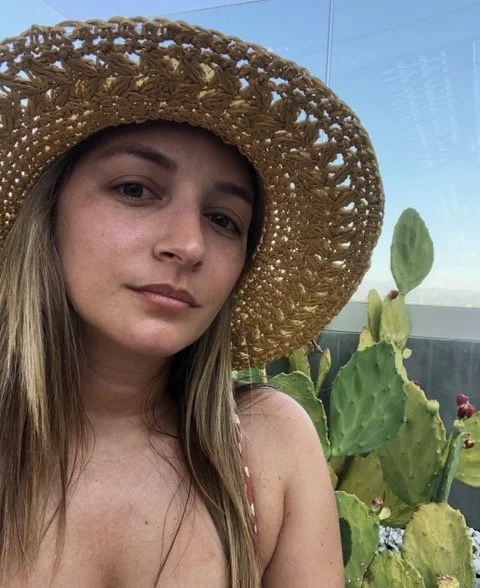Essay As Inquiry
The trail smells like licorice after the rain. California always needs rain, but this rain in particular has come after a long time of no rain. I’ve been on a bit of a Hemingway kick lately, and I can’t help but think of what he says about the promise of spring:
“But you knew there would always be the spring, as you knew the river would flow again after it was frozen.” – Hemingway, A Moveable Feast
It’s a crisp 45 degrees this morning, and the promise of spring seems so far away. And lately, my regimented to the point of self-torture writing routine has fallen away. I had been in a time of waiting for quite some time, and have recently entered into another new waiting state. I’ve always preferred the French for waiting state, “état d'attente,” which I learned from a therapist years and years ago. The waiting can feel like when you’re itching for winter to turn to spring, spring to summer, summer to fall, or the crazies who enjoy winter most and wait for that chill all year round.
In my temporary departure from novel writing, I have taken to writing more essays, case in point, this essay you’re reading right now. When I return home from my morning hikes, I de-layer and make coffee and feel compelled to tell the truest tales I know. I want to share my life, even though I have been feeling “less than” and imposter in living it. I text back and forth with my best friend who reminds me of the truth, that what happens in my head is a lie, my mental illness talking. I don’t write that lightly, as it’s extremely difficult for me to ask myself what is real and what is all in my head, and even more challenging to know the answer.
In this way, my writing looks about the same. On the page, I am always asking a question and hoping to write my way to the answer.
In the summer of 2021, I met author and complete and total badass, Elena Passarello. Elena is the one who taught me about Essay as Inquiry, as I was writing an essay about the parallels between my brother and my own mental health, my experience with EMDR (Eye Movement Desensitization and Reprocessing) Therapy, and pigeons. Elena was helpful in guiding me to ask what the inquiry of the essay was, along with the deeper and more complicated question of who I am as a writer and how I might tell the reader this story.
She encouraged me to pay attention to the inquisitive nature of the mind, to follow its natural curiosity in order to bring about how each of these ideas associates to the other. The essay needs to have a single function, and all the other things will become connective tissue. Each round of revision should be focused on figuring out how the ideas all relate. Does the peripheral text need to be forced in more or cut away? Is something inside the essay actually fodder for another essay I might tell later on?
Every essay is a manifesto. It begins with a question and that question might start out as simple as “Why did this happen?” Most, or all, of my writing seeks to make sense of my life, of my family’s trauma, of how I/we might heal from it, but rarely do I get a straightforward answer when I take to the page. What I do receive, however, is the comfort that the page is always there for me to return to, to try and sort things out, to attempt to understand, or at least accept what is and what will be.
Elena also told me I needed to ask why I was fascinated (read as obsessed) with the pigeons (I still am btw).
The promise of spring, the promise of the page, are all enough reason for us to keep writing our histories, to keep at it and keep trudging forward, even if we don’t get as many answers and only end up with more questions.
For the pain: I have my friends, I have my hikes, I have my oat milk lattes. I have mentors and good books. I have the pain itself, this pain that is perhaps an answer. It’s not the answer I want, but it continues to lead me toward the spring.
One more Hemingway quote for the road, and I hope it brings you joy as it has for me:
“When spring came, even the false spring, there were no problems except where to be happiest. The only thing that could spoil a day was people and if you could keep from making engagements, each day had no limits. People were always the limiters of happiness except for the very few that were as good as spring itself.”—Hemingway A Moveable Feast
About Brittany Ackerman
Brittany Ackerman is a writer from Riverdale, New York. She earned her BA in English from Indiana University and graduated from Florida Atlantic University’s MFA program in Creative Writing. She teaches General Education at AMDA College and Conservatory of the Performing Arts in Hollywood, CA. She was the 2017 Nonfiction Award Winner for Red Hen Press, as well as the AWP Intro Journals Project Award Nominee in 2015. She has lead workshops for the UCLA Extension, Catapult, HerStry, among others. Her work has been featured in Electric Literature, Jewish Book Council, Lit Hub, Entropy, The Los Angeles Review, No Tokens, Hobart, Cosmonauts Ave, and more. Her first collection of essays entitled The Perpetual Motion Machine was published with Red Hen Press in 2018, and her debut novel The Brittanys is out now with Vintage.

